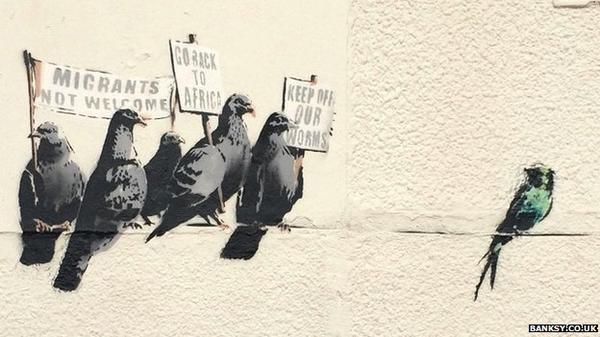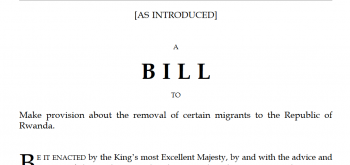23-hour a day curfews imposed on asylum seekers may be unlawful, according to a legal challenge. Lawyers argue that asylum seekers housed in hotels by the Home Office are being falsely imprisoned and deprived of their liberty contrary to Article 5 of the European Convention on Human Rights.
The asylum seeker bringing the legal action has been forbidden from leaving his hotel accommodation for more than one hour per day since he was first housed there in January 2021. As a result, he is only able to carry out permitted activities such as essential shopping and exercise if he returns within a strict one-hour time frame. He has been informed that if he takes any longer, this will be reported to the Home Office, and could have an adverse effect on his asylum claim.
Security guards positioned at the front door keep tabs on time, demanding that all asylum seekers leaving the hotel sign in and out. The guards also question the residents as to their reasons for wanting to leave, and check their bags upon return. Other asylum seekers housed in London hotels have shown The Guardian letters which threaten to report any rule-breakers to the police.
Matthew Gold & Co, the firm representing the claimant, believe that there is no legal basis for the imposition of the curfew. Although Coronavirus laws and regulations restrict the type of activities individuals are allowed to undertake, they make no reference to any time limits.‘Whilst this is a time where everyone is making sacrifices to try to fight the coronavirus, there is no lawful or moral justification for imposing restrictions on the lives of asylum seekers which are more stringent than those which are being applied to the wider population’, said Matthew Gold solicitor Rachel Etheridge.
The curfew, which is being applied across at least 10 other hotels, is taking its toll on the claimant’s mental health. Like many others, the asylum seeker bringing the action came to the UK fleeing persecution in his home country where he was subjected to state abuse and detention. According to his lawyers, the curfew is a painful reminder of these experiences, and one which is affecting his ‘ability to cope with these traumas and his mental health conditions’.
The Home Office has recently come under fire from rights groups and MPs for housing asylum seekers in a former army training camp in Kent. The Guardian reports that asylum seekers accommodated in the controversial Napier Barracks site have been told that their asylum claims will suffer if they ‘misbehave’. Others were informed that their claims would be compromised if they failed to return to the barracks by 10pm.
Speaking to The Guardian, a Home Office spokesperson said: ‘The government has a statutory duty to provide accommodation to asylum seekers who would otherwise be destitute – the accommodation is safe and secure and they receive three nutritious meals a day – this is all funded by the taxpayer.’







